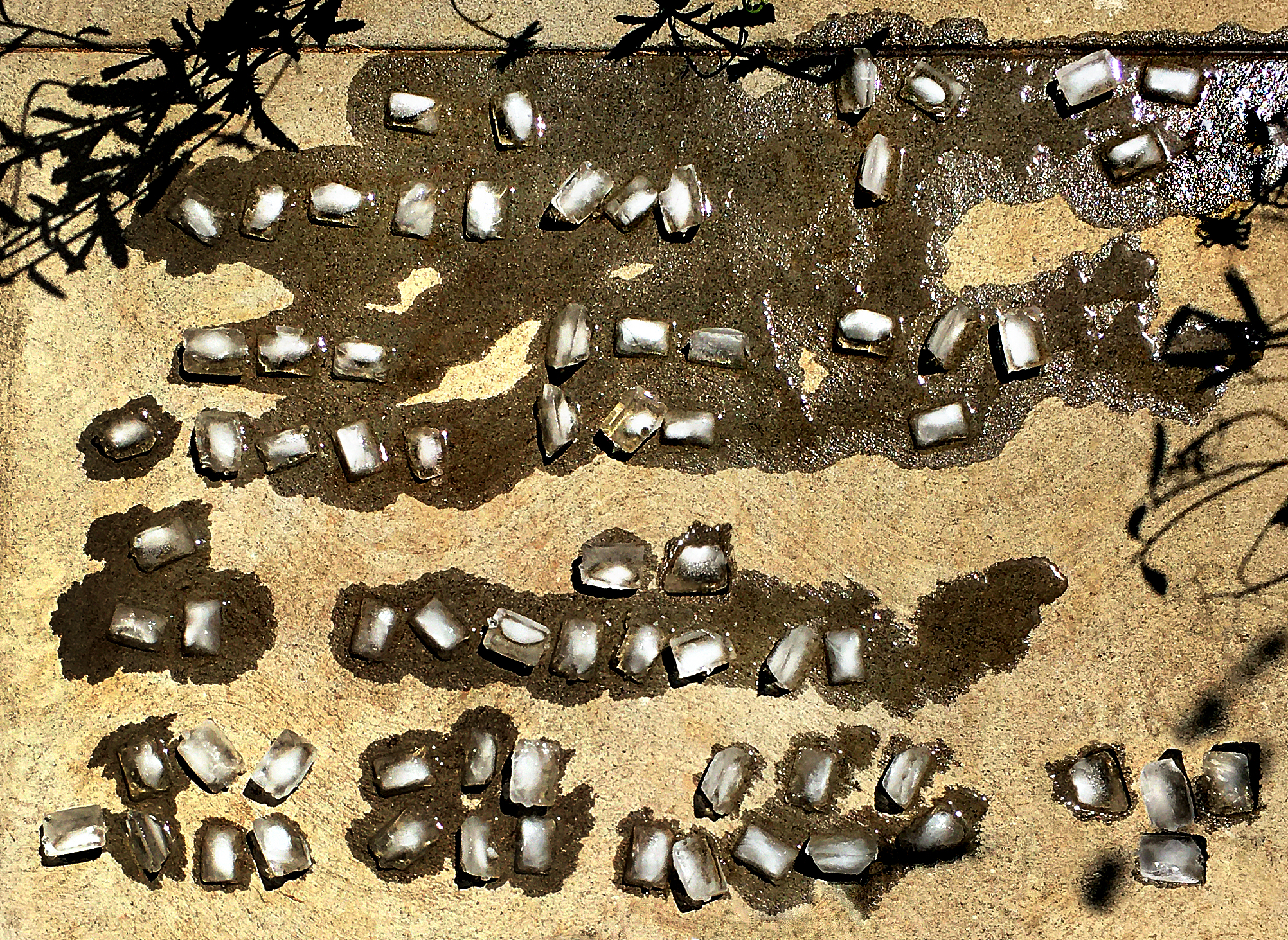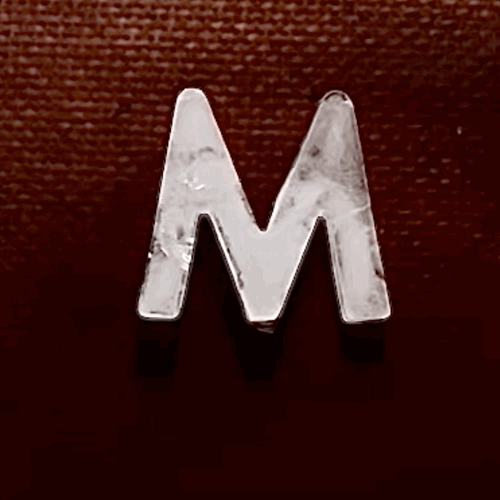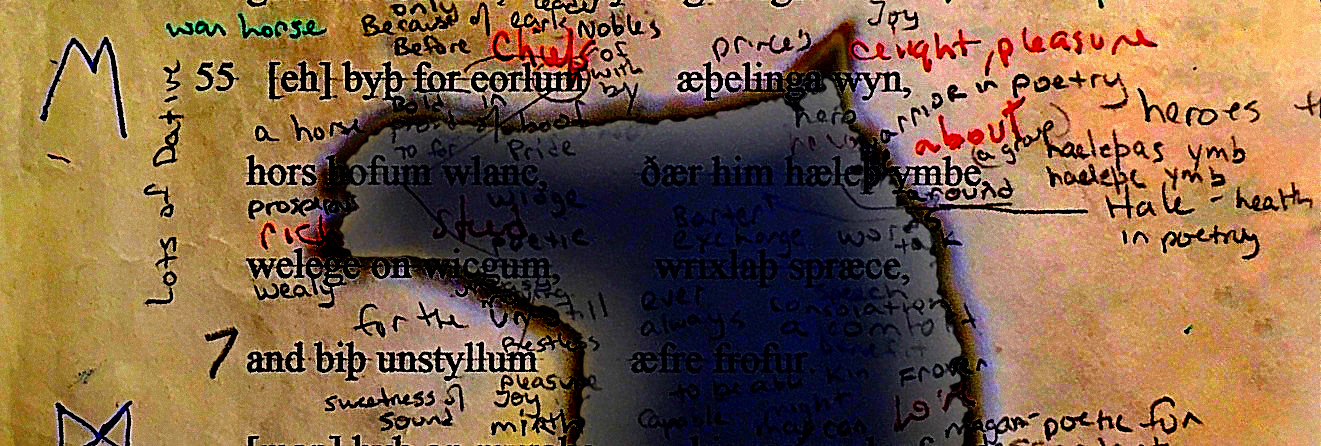 There’s lots of words for horse in Old English, hors, for one. But there’s wicg, hengest, friþhengest, onrid, radhors, mearh, sceam, steda, stott, blanca, gelew, all words that mean specific types of horses by the style, sex, physical appearance, color. This was a horse culture. Horses were a very big deal. Why? They made life easier. Having a horse changes everything. They were useful for pulling stuff, not for ploughing though, they would use oxen for that, but they would use horses to bring goods to market and to haul just about anything anywhere, including themselves: in carts and on horseback. During their prime, horses were particularly indispensable for sending messages long distances. Speedy communication has always been desirable. Finally, literally, chop marks in their bones mean that sometimes horses were eaten, particularly after they’d reach five years of age. Even … More
There’s lots of words for horse in Old English, hors, for one. But there’s wicg, hengest, friþhengest, onrid, radhors, mearh, sceam, steda, stott, blanca, gelew, all words that mean specific types of horses by the style, sex, physical appearance, color. This was a horse culture. Horses were a very big deal. Why? They made life easier. Having a horse changes everything. They were useful for pulling stuff, not for ploughing though, they would use oxen for that, but they would use horses to bring goods to market and to haul just about anything anywhere, including themselves: in carts and on horseback. During their prime, horses were particularly indispensable for sending messages long distances. Speedy communication has always been desirable. Finally, literally, chop marks in their bones mean that sometimes horses were eaten, particularly after they’d reach five years of age. Even … More
Tag Archives: William Shakespeare
M is for Mortality
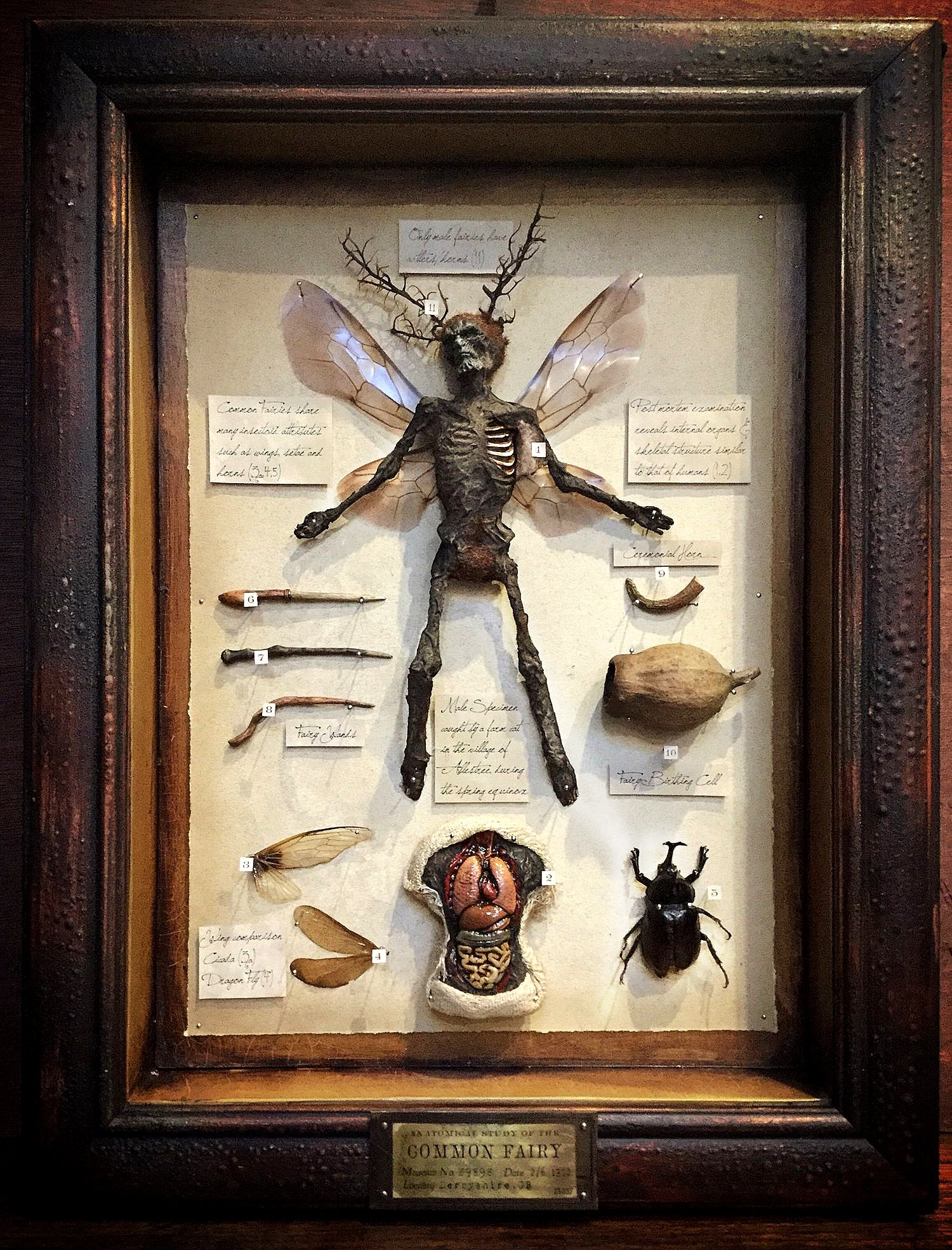 Lord what fools these mortals be
Lord what fools these mortals be
Wondering at spectrality.
What is our modality?
Are we duality or plurality?
Or some sort of totality?
And where is our locality?
Ignoring their own finality
(Life is a fatality).
Why so much brutality?
What is this mentality?
Forgive me a legality
But life is for vitality.
Playing games with lethality,
How is this normality?
Better brush up on morality,
Find some commonality,
(Or at least some cordiality).
Wake up and smell reality,
Mortality is factuality.
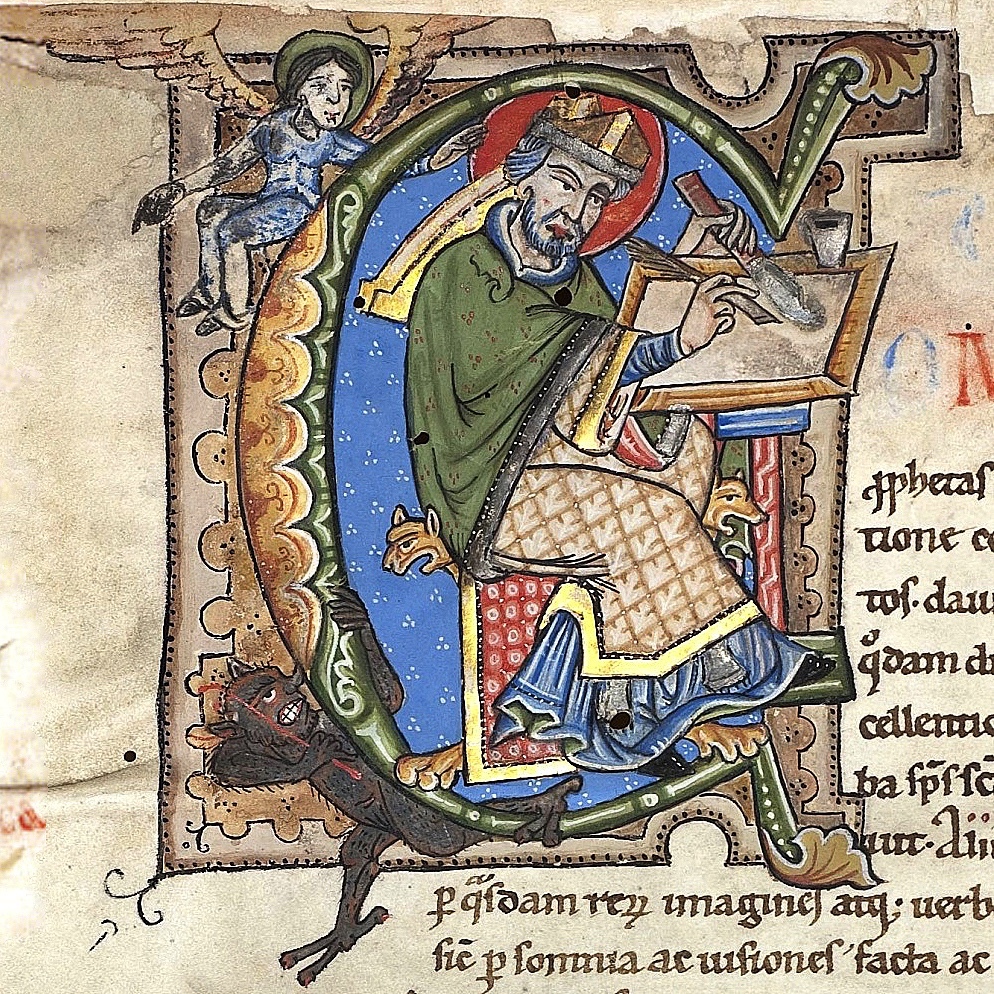
Rune Casting: Mann
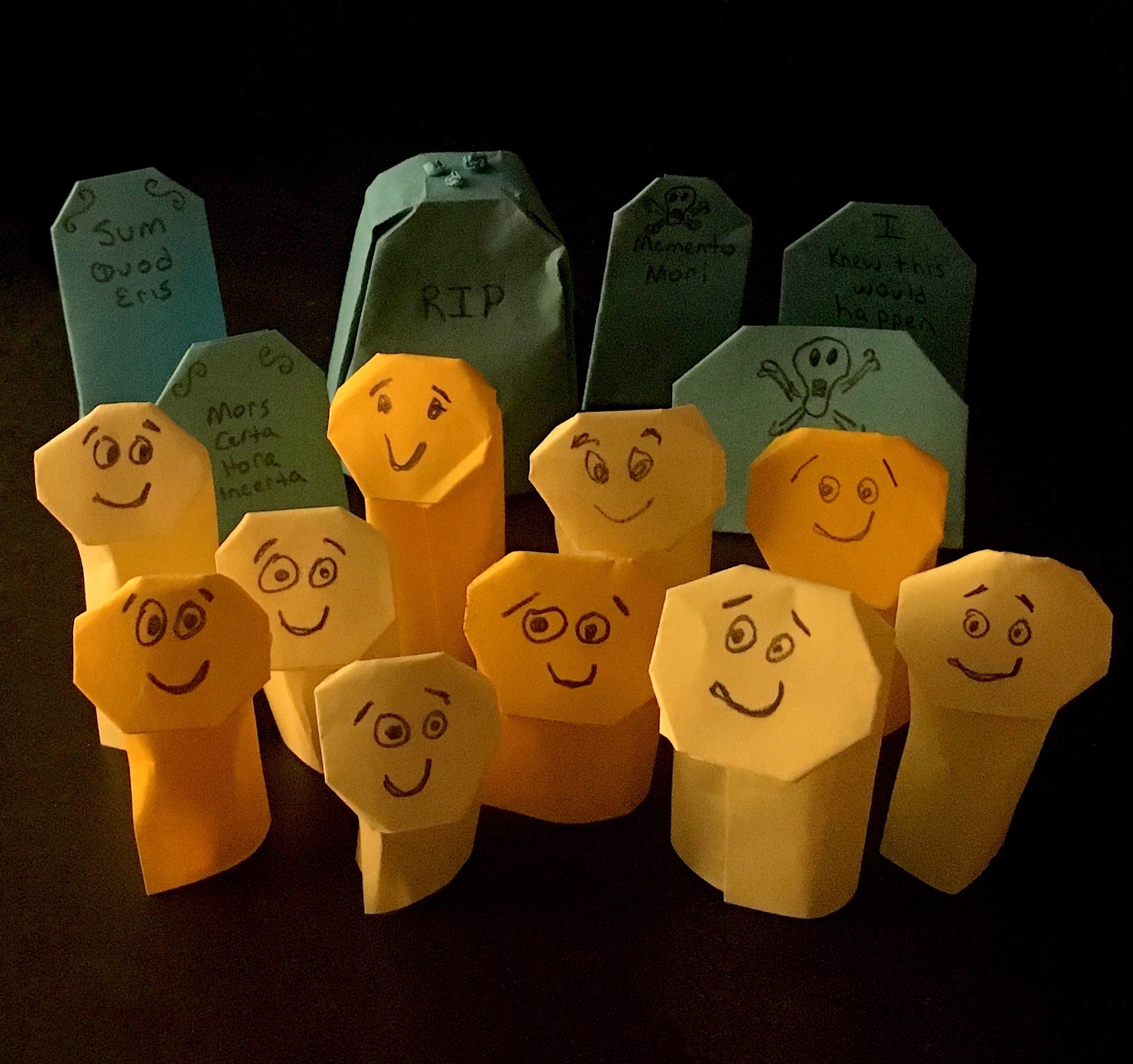 Be happy, your people love you, especially when you are happy. Enjoy each other now because everybody will die. When will you depart, one from the other? O I couldn’t tell you that. That’s not for us to know.
Be happy, your people love you, especially when you are happy. Enjoy each other now because everybody will die. When will you depart, one from the other? O I couldn’t tell you that. That’s not for us to know.
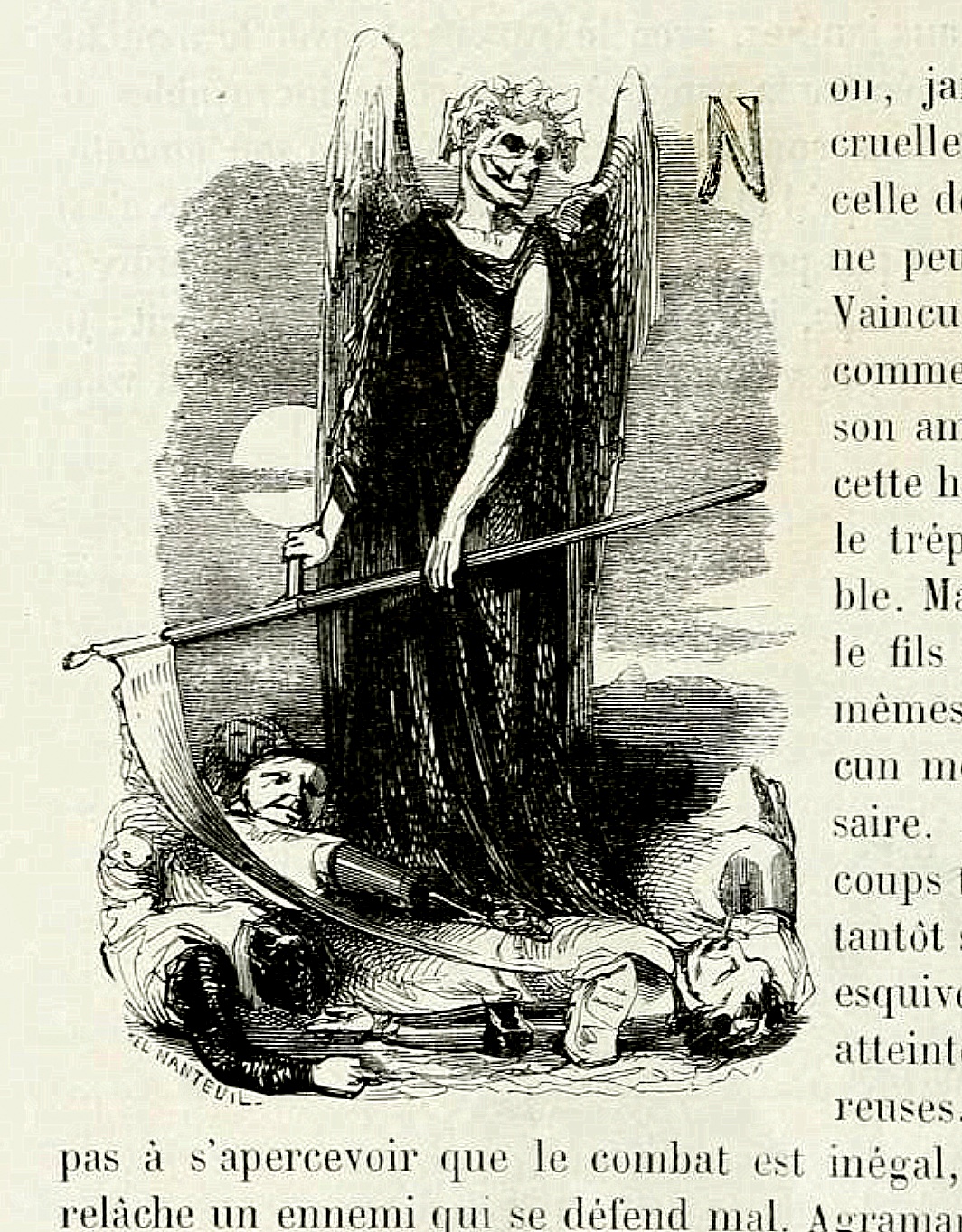
Translating Feoh
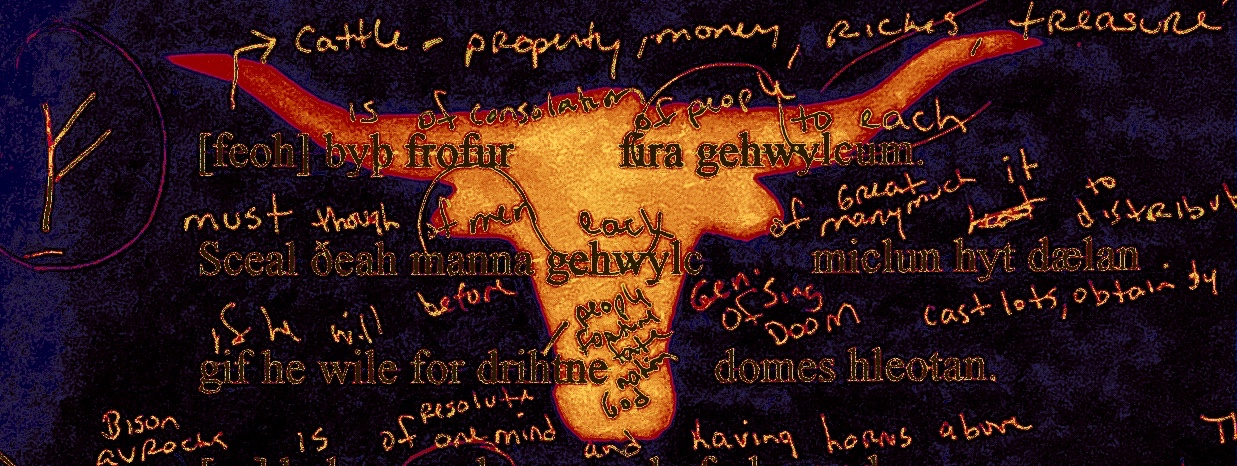 Feoh means cattle, which meant everything to the rune carvers. People kept sheep and pigs, but it’s the cows that were the money. Cattle are useful, they pull things, they’re delicious, you can make stuff out of their fat and their hides. Lots of stuff. Good stuff. Stuff people depend on and value. Stuff you must give away. You must. Yes this stanza says the people sceal spread it around, it sounds like shall, but the meaning is more of a must than that. You shall and you will and you had much better do it than don’t.
Feoh means cattle, which meant everything to the rune carvers. People kept sheep and pigs, but it’s the cows that were the money. Cattle are useful, they pull things, they’re delicious, you can make stuff out of their fat and their hides. Lots of stuff. Good stuff. Stuff people depend on and value. Stuff you must give away. You must. Yes this stanza says the people sceal spread it around, it sounds like shall, but the meaning is more of a must than that. You shall and you will and you had much better do it than don’t.
Do what?
Daelan. Deal it out. Give it away.
Why? That’s gif he wile. If you will.
You will. It’s a big mistake not to, the last line says so. What you do with your wealth you do in front of God and everybody, and fate has a way of paying attention to how you … More
Translating Ear
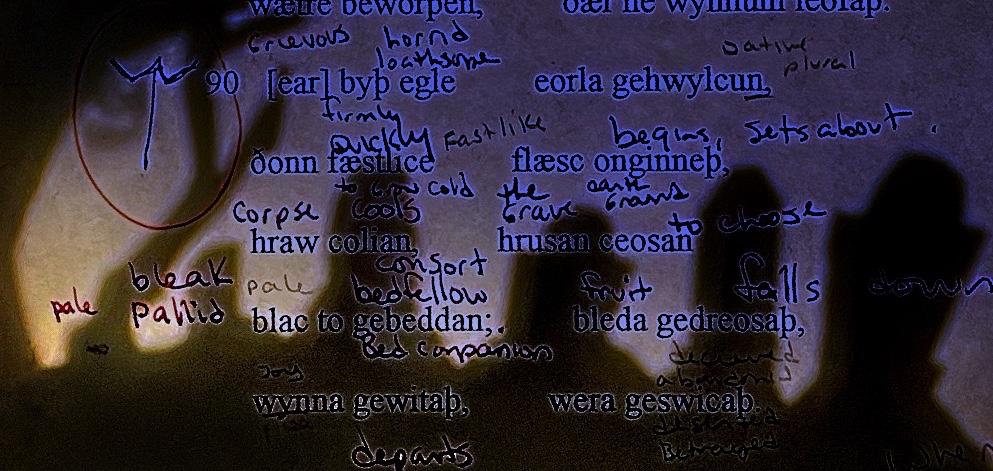 Old English uses very few words at a time, but in all the minimalism there’s a massive amount of meaning: often multiple meanings of the same word are intended, black is sometimes white, and frequently there’s a pun in there somewhere. To translate Old English we need to use more words than the original, and still it’s difficult to pack all that meaning back in. Translation fills graveyards of context and nuance, left behind to grow cold. What is lost by gaining? What do we kill dead? Alliteration and meter, the music makers of language. The beat, deceased, sounds abandoned. Look at this:
Old English uses very few words at a time, but in all the minimalism there’s a massive amount of meaning: often multiple meanings of the same word are intended, black is sometimes white, and frequently there’s a pun in there somewhere. To translate Old English we need to use more words than the original, and still it’s difficult to pack all that meaning back in. Translation fills graveyards of context and nuance, left behind to grow cold. What is lost by gaining? What do we kill dead? Alliteration and meter, the music makers of language. The beat, deceased, sounds abandoned. Look at this:
blac to gebeddan bleda gedreosaþ
Now say it:
black to yeh-bed-an blea-da yeh-dre-o-sath
There’s some sound in it, listen. Alliteration and beat. Three repetitions of B making a beat and there’s a pause in the middle: two parts sung as one statement. Or a call and response. Old English poetry has a … More


